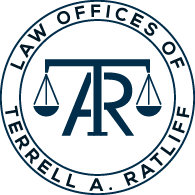Navigating a Title IX investigation can be an overwhelming and stressful experience for students, faculty, and staff accused of misconduct. Understanding how these investigations work and the rights of the accused is crucial in ensuring a fair and just process. At the Law Office of Terrell A. Ratliff, we provide dedicated legal representation to those facing Title IX allegations, helping them protect their academic and professional futures.
What is Title IX?
Title IX is a federal law that prohibits sex-based discrimination in educational institutions that receive federal funding. This law extends to various forms of misconduct, including sexual harassment, sexual assault, dating violence, and gender-based discrimination. Colleges and universities are legally required to investigate allegations of Title IX violations and take appropriate actions to address misconduct.
How Does a Title IX Investigation Work?
When a complaint is filed, the school follows a structured process to investigate and resolve the matter. While the procedures may vary from one institution to another, most Title IX investigations follow these key steps:
- Filing of a Complaint
- A formal complaint is submitted to the school’s Title IX office, typically by the alleged victim (complainant) or a third party.
- Initial Assessment
- The Title IX coordinator reviews the complaint to determine whether it falls within the scope of Title IX policies.
- Notice of Investigation
- Both the complainant and the accused (respondent) are notified about the investigation and provided with relevant details.
- Investigation Process
- An investigator gathers evidence, interviews witnesses, and collects statements from both parties. This phase is crucial, as the findings will heavily influence the final decision.
- Hearing or Decision-Making Process
- Some schools conduct live hearings where both parties can present their cases, while others rely on investigative reports for decision-making.
- Determination and Sanctions
- Based on the evidence, the school determines whether a Title IX violation occurred. If found responsible, the respondent may face disciplinary actions ranging from probation to expulsion.
- Appeal Process
- Both parties may have the right to appeal the decision based on procedural errors, new evidence, or disproportionate sanctions.
Why You Need Legal Representation
A Title IX investigation can have serious consequences, including academic suspension, expulsion, and damage to your reputation. Having an experienced attorney by your side ensures that your rights are protected throughout the process. At the Law Office of Terrell A. Ratliff, we provide strategic defense for students and faculty accused of Title IX violations, including:
- Reviewing evidence and building a strong defense.
- Ensuring due process rights are upheld.
- Advising on communication and testimony.
- Representing clients in hearings and appeals.
Protect Your Future with the Right Defense
If you or a loved one is facing a Title IX investigation, do not navigate the process alone. Contact the Law Office of Terrell A. Ratliff today for expert legal counsel and a strong defense against wrongful allegations. Your future and academic career deserve the best protection available.
Call us today at (856)344-3808 for a consultation and take the first step toward safeguarding your rights.
